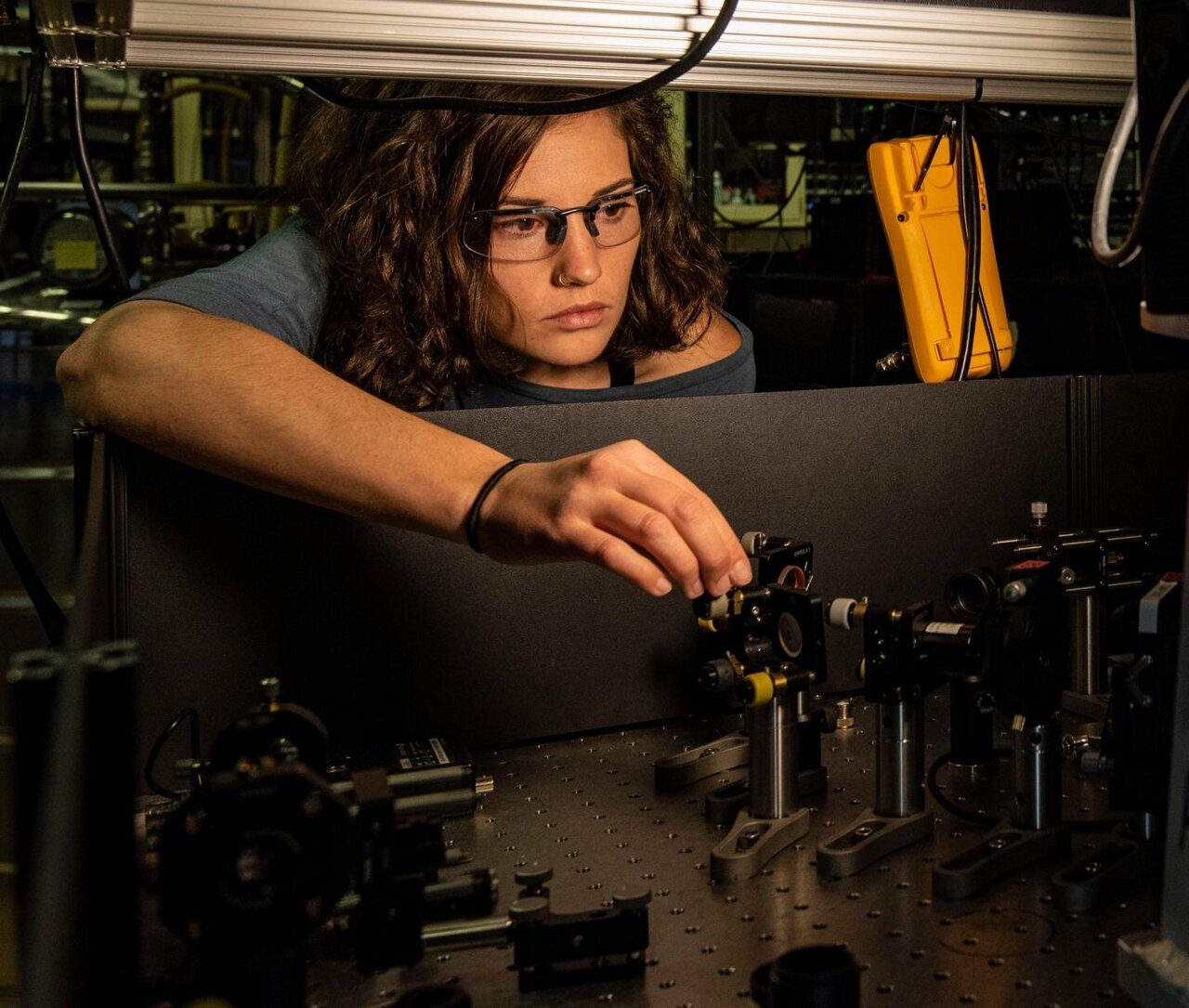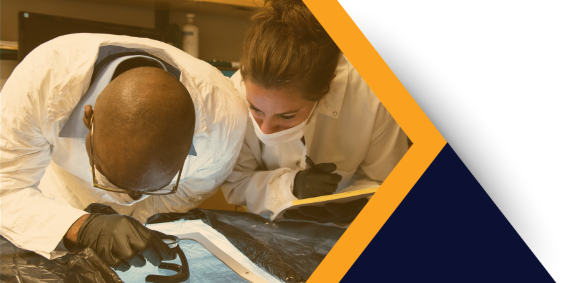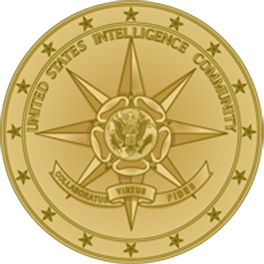Meet Katherine McCormick, Ph.D.
IC Postdoc participant studies Feshbach resonances for magnetic field sensing
When Katherine McCormick was young, she felt drawn toward the language arts. She taught herself to read before kindergarten and spent her elementary school years reading voraciously, devouring book after book. However, when she reached high school and took her first physics class, McCormick discovered a love for a new type of language—the language of math.

Katherine McCormick, Ph.D., adjusts a mirror to steer a laser beam onto an atom. Photo Credit: James Burrus, NIST Boulder
When Katherine McCormick was young, she felt drawn toward the language arts. She taught herself to read before kindergarten and spent her elementary school years reading voraciously, devouring book after book. However, when she reached high school and took her first physics class, McCormick discovered a love for a new type of language—the language of math.
“It was as if suddenly the reason why we took integrals and derivatives in math made sense,” said McCormick. “The thought that I could explain the world around me with science and math was so empowering and inspiring.”
The deeper McCormick got into her physics education, the deeper she fell in love with using math to unravel the mysteries of the natural world. She went on to receive her bachelor’s degree in astrophysics and mathematics from the University of California, Santa Cruz in 2012, followed by her doctoral degree in physics from the University of Colorado, Boulder in 2019.
Recently, McCormick was able to put her passion for physics and math into practice by participating in a fellowship through the Intelligence Community (IC) Postdoctoral Research Participation Program. The IC Postdoc Program offers scientists and engineers from a wide variety of disciplines unique opportunities to conduct research relevant to the Intelligence Community.
For her appointment, McCormick joined the Ultracold Atoms Group at the University of Washington. Under the guidance of her mentor, Subhadeep Gupta, McCormick conducted research studying Feshbach resonances.
“A Feshbach resonance is a very powerful tool that is commonly used in atomic physics to form molecules and control how strongly atoms interact with one another,” explained McCormick. “Feshbach resonances happen at particular magnetic field values, so if you can control the magnetic field that your atoms in your experiment experience, then you can find these Feshbach resonances and use them for all sorts of experiments.”
McCormick’s research efforts focus on a particularly narrow Feshbach resonance, meaning it only happens for a narrow range of magnet field values. In order to hold on to the resonance, you must be able to control the magnetic field to better than 0.0001%. This makes it incredibly difficult to study and less useful as a tool to control atom interactions. However, the narrowness of this Feshbach resonance means that scientists are able to very precisely identify the magnetic field it is close to, making it a valuable tool for studying atoms. McCormick is using this Feshbach resonance to study how atoms scatter off of one another in order to develop a magnetometer that can detect magnetic fields based on atom behavior.
“Magnetic field sensing has tons of applications, from navigation to medicine,” said McCormick. “We’re doing a more ‘proof-of-concept’ experiment right now, but it might eventually find a place in high-resolution magnetic imaging.”
Throughout her fellowship, McCormick learned many skills important to her future career as a researcher.
“I’ve learned the value of perseverance in research. About 99% of the time the first idea or iteration of an experiment doesn’t work. You have to improvise, improve, and try again. Science wouldn’t be anywhere close to where it is today without a healthy dose of persistence!” said McCormick.
She also discovered a new interest in the field of science communication, which she hopes to pursue after the conclusion of her research. McCormick believes her fellowship experience will help her bridge the gap between scientists and the public.
Overall, McCormick describes her experience in the IC Postdoc Program as rewarding and is thankful for the opportunity.
“It’s been great to grow from being a new postdoc in a newer field to being a confident researcher,” McCormick said. “It has been really cool to be a part of a program that funds such a wide variety of research projects.”
The Intelligence Community Postdoctoral Research Fellowship Program is funded by the Office of the Director of National Intelligence (ODNI) and managed by the Oak Ridge Institute for Science and Education (ORISE) under an agreement between the IC and the U.S. Department of Energy (DOE). ORISE is managed for DOE by ORAU.



